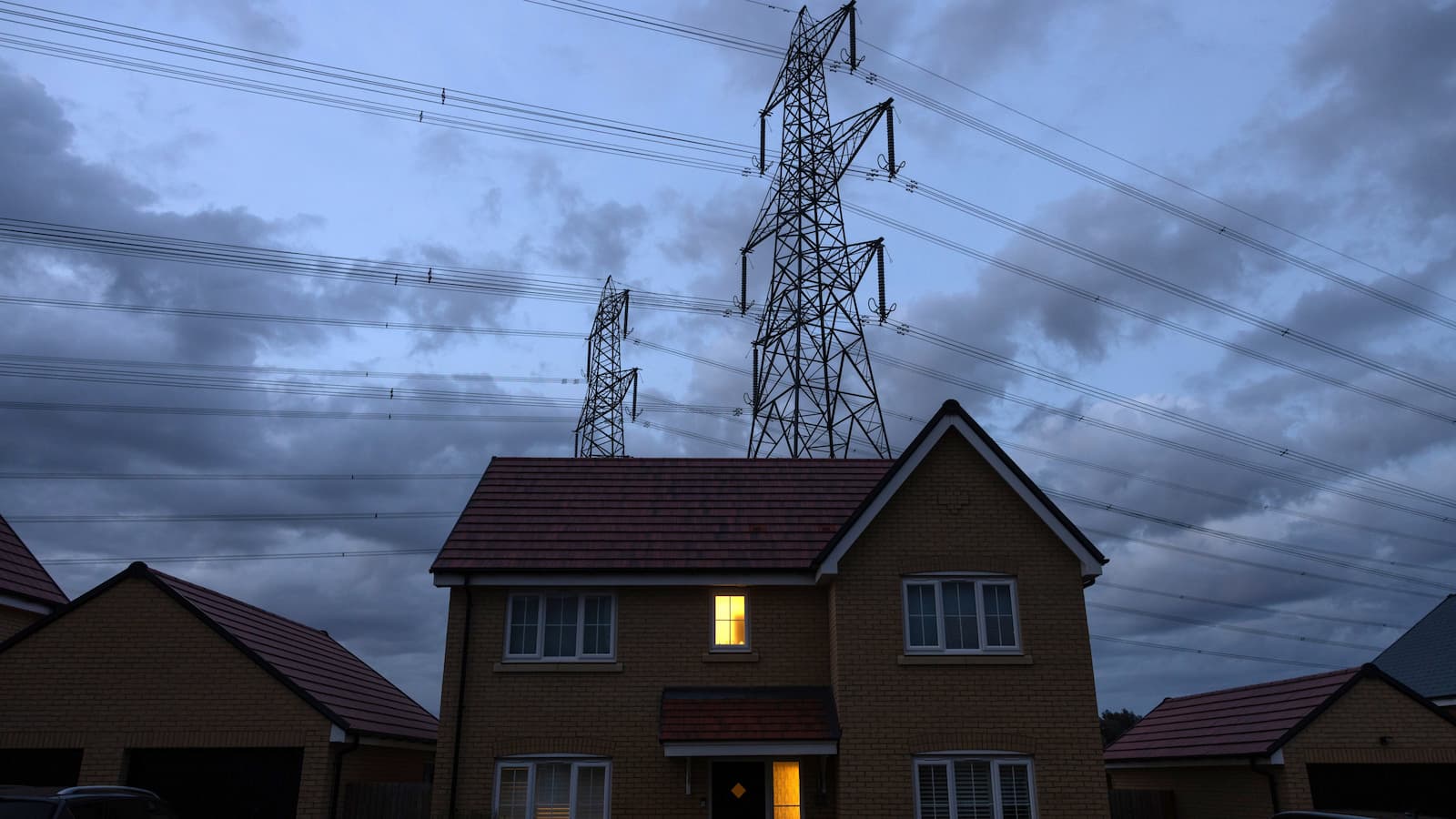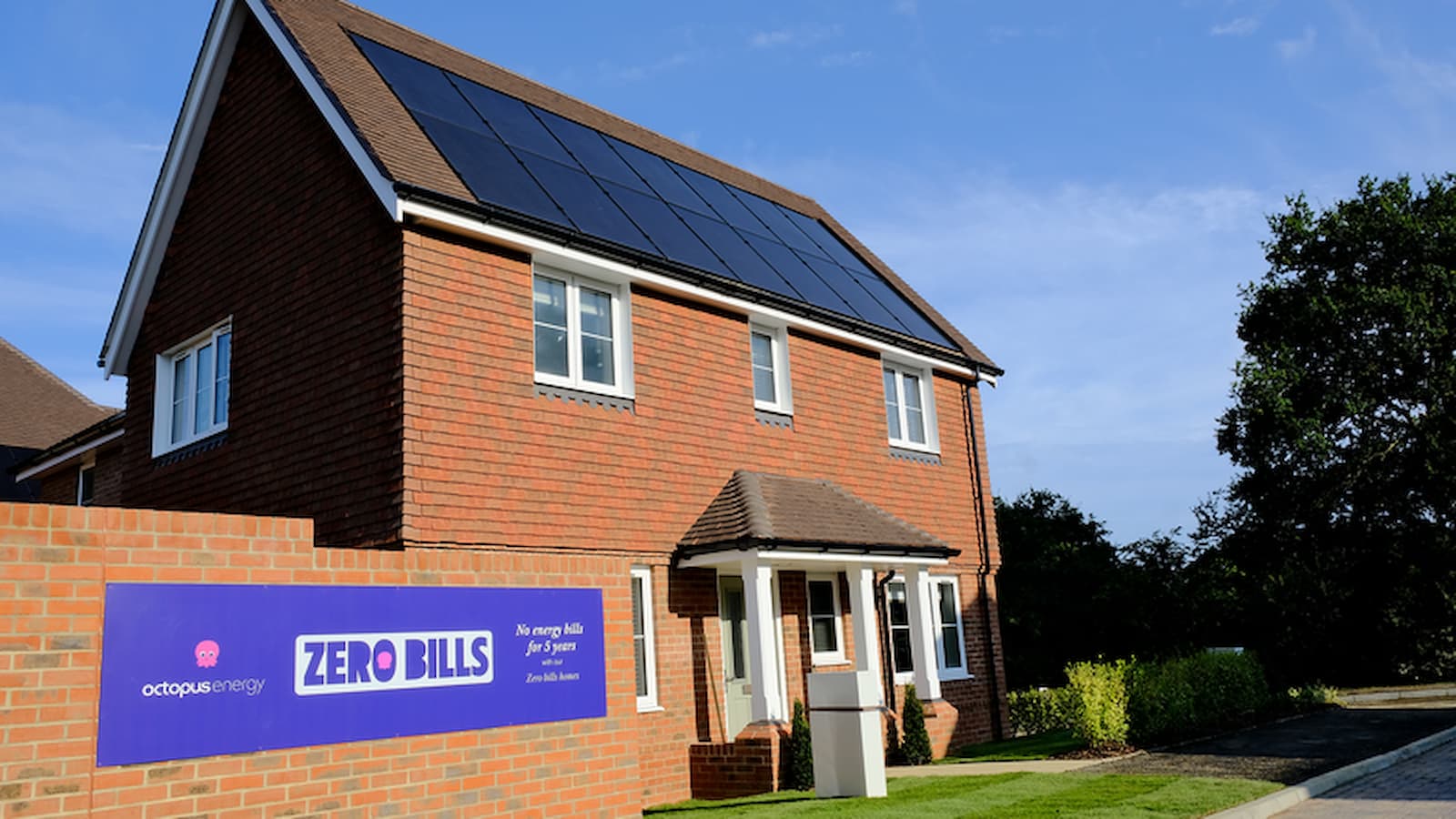Energy debt hit record levels amid warning it will rise further without nationwide home retrofits
Energy debt at record level amid warning it will rise further without nationwide home retrofits

Bring your dream home to life with expert advice, how to guides and design inspiration. Sign up for our newsletter and get two free tickets to a Homebuilding & Renovating Show near you.
You are now subscribed
Your newsletter sign-up was successful
Britain faces a deepening energy crisis with household debt to suppliers hitting a record £4.4 billion.
As another winter energy price rise takes effect, campaigners warn millions risk falling behind on bills once again.
Experts say the only long-term solution lies in upgrading millions of draughty, inefficient homes, as a new generation of “zero-energy-bill” houses shows what’s possible.
Record debt raises alarm over winter bills
Millions of households are bracing for higher costs this winter after Ofgem’s latest energy price cap rise added about 2% to typical gas and electricity bills.
The increase takes annual costs for a typical household to around £1,755, up £35 on the previous quarter. But behind the modest percentage lies a mounting crisis.
Ofgem figures show households now owe £4.4 billion to energy suppliers, the highest level since records began. More than one million homes have no arrangement in place to repay their debt.
Energy UK, the trade body for suppliers, said the figures underline the need for an “enduring, properly targeted” system of support.
Bring your dream home to life with expert advice, how to guides and design inspiration. Sign up for our newsletter and get two free tickets to a Homebuilding & Renovating Show near you.
“The level of help remains insufficient for those who need it most,” said Ned Hammond, deputy director at the organisation. “Without structural reform, the number of people unable to pay will only rise.”
Warning over the cost of inaction
Consumer groups and housing experts warn the UK’s failure to improve its ageing housing stock is trapping millions in high bills.
The country’s homes lose heat up to three times faster than in many parts of Europe, largely due to poor insulation and outdated heating systems.
Brian Berry, chief executive of the Federation of Master Builders, said small contractors are ready to deliver large-scale retrofit programmes but “lack clear, long-term funding and a stable policy framework.”
Local authorities echo that message. The Local Government Association has urged ministers to accelerate retrofit schemes, warning that delays are “locking households into unnecessary costs” and undermining efforts to cut carbon emissions.
A government-commissioned supply chain review published this year found that Britain will need tens of thousands more trained retrofit installers to meet its energy-efficiency targets, but current training capacity is far short of demand.
Zero-energy-bill homes point to a different future

While millions struggle with arrears, a small but growing number of “zero-energy-bill” homes are offering a glimpse of what the future could look like.
Developers such as Barratt Developments, Ilke Homes, and social housing providers in Oxfordshire and the West Midlands have built pilot sites where solar panels, air source heat pumps and battery storage allow homes to generate as much power as they use.
These homes typically cost more to build upfront but remove energy bills entirely by balancing generation and consumption over the year.
Housing analysts say such designs - combined with large-scale retrofitting of existing stock - could drastically cut household energy costs if backed by consistent policy.
“This isn’t science fiction,” said Simon McWhirter of the UK Green Building Council. “We already have homes that produce their own energy. What’s missing is the scale and investment to make it the norm.”
Race to retrofit
The government says its upcoming Home Upgrade Programme will support up to five million households with better insulation and low-carbon heating.
But campaigners warn progress is too slow to protect vulnerable families this winter - or to prevent future crises.
A report by Energy UK estimates that spending £1.5 billion a year on targeted support could close the fuel-poverty gap completely, saving affected families an average of £400 annually.
Until such investment materialises, the divide between those in energy debt and those living in zero-bill homes is likely to keep widening.
As winter approaches, suppliers, builders and charities are issuing the same warning:
without a nationwide effort to retrofit Britain’s homes, the country will keep paying for heat that simply escapes through the walls.

News Editor Joseph has previously written for Today’s Media and Chambers & Partners, focusing on news for conveyancers and industry professionals. Joseph has just started his own self build project, building his own home on his family’s farm with planning permission for a timber frame, three-bedroom house in a one-acre field. The foundation work has already begun and he hopes to have the home built in the next year. Prior to this he renovated his family's home as well as doing several DIY projects, including installing a shower, building sheds, and livestock fences and shelters for the farm’s animals. Outside of homebuilding, Joseph loves rugby and has written for Rugby World, the world’s largest rugby magazine.
